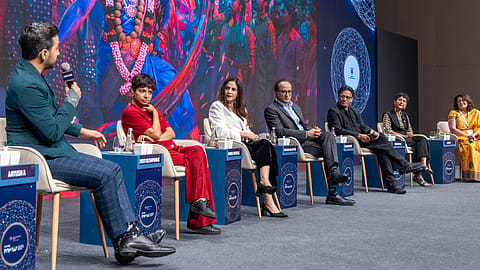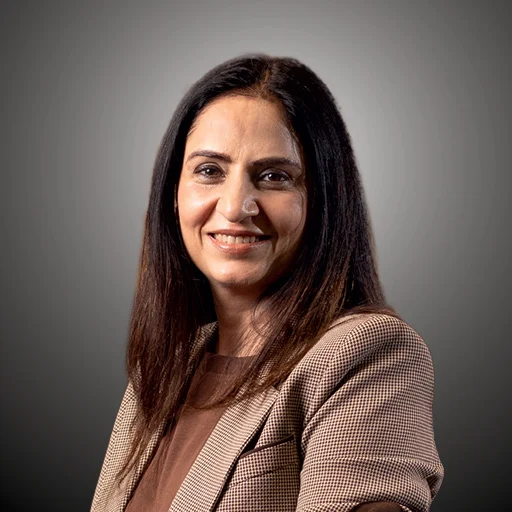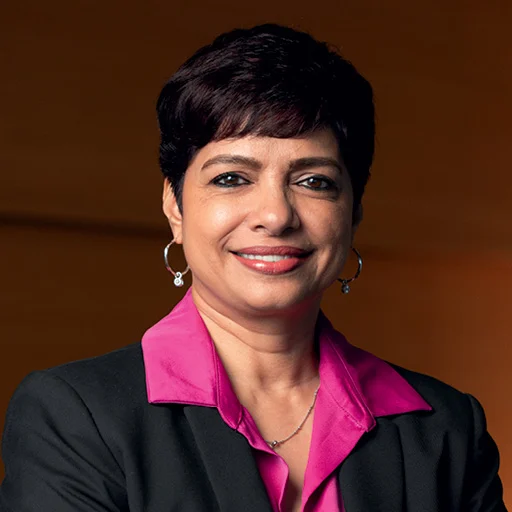Can India build its own Marvel Cinematic Universe? Experts say it starts with thinking long-term about IP
Industry leaders argued that India’s entertainment sector must shift from a one-off mindset to a long-term IP approach, emphasising the need to nurture IP, not just name it.

While a lot of talk abounds about the ownership of intellectual property (IP) by studios and production houses in India, luminaries in the Indian entertainment industry at a panel discussion titled “The Changing Face of Content” at Fortune India’s Most Powerful Women believe that there needs to be a business case for holding onto an IP beyond a single outing, something that has long-term potential in it.
Vikram Malhotra, founder and CEO of Abundantia Entertainment, believes that the common misconception of anchoring IP to content, films, and shows has led to viewing it with tunnel vision. “IP isn’t a single-use product. IP inherently stands for the long-term value of a property. IP has several layers to it,” said Malhotra. According to him, ownership of an IP comes with financial wherewithal. “Ownership means to be able to hold on to what you have been using or distributing, seeing long-term potential in that,” he said. “To solve that, you need structured financial capabilities throughout the ecosystem, throughout the value chain.”
A question that Malhotra has for filmmakers, he divulges, is what they are going to do with the IP. “It’s not a bankable product in its truest sense. IP emerges from the ability to extend and leverage. IP needs to be leveraged,” he said. In Hollywood or globally, according to Malhotra, the biggest franchises are institutionally owned by studios and platforms. “But it doesn’t happen in India we’ve never driven by franchise-building storytelling or IP-building storytelling. Adding a ‘two’ or ‘returns’ to a film title isn’t really IP-building. It starts from what the content perspective is.”
Jyoti Deshpande, President, Media and Content Business, RIL, divulged that Reliance has been able to hold on to 100% of its IP. “Platforms aren’t prescribing anything when it comes to holding onto IP,” she said. According to her, it is all about finding the right story. “If the studio has the wherewithal to make the financial investment, put their money where their mouth is, make a compelling story, and ride the risk of a platform licensing it or not licensing it, then the studio can own its IP and still have a collaborative relationship with the platform,” she explained.
According to Deshpande, the effort must go into creating compelling worlds, characters, and franchises that outlive a single outing, and crafting a story that has legs to travel. “I don’t think we have scratched the tip of the iceberg of what we can do, and that’s not because you can take a non-compelling story and start selling mugs around it. Those characters have to become that important for people to buy the merchandise,” she said.
Deshpande avers that, going forward, when more consolidation occurs in the industry—which, according to her, is already underway—storytellers will be able to focus on storytelling. “There will be other people to put a structure around it. More focus will be placed on more rooted stories, world-building, and character-building that will outlive a single outing,” she said.
Monika Shergill, Vice President of Content at Netflix India, believes that there needs to be a business case for an IP. “Not everything is an IP. It’s a story, and what the value of that world is? What are you going to do with it? What is the pure business value of extension of that world?”, she said. Shergill also disclosed that Netflix has more content whose IP it doesn’t own than the ones it does. “When we lean into an idea, from the get-go, and we are there to enable the producers and creators to take 100% of the risk by backing them and take it through that entire journey of building it into a story, creating it, developing it, marketing it,” she said.
Recommended Stories
She also highlighted that stories are travelling across cultures and languages. “70% of stories on Netflix are consumed in subs and dubs. It’s like a flight map across the globe. You don’t know who is watching where and who is getting inspired. There’s a power in making stories travel,” she said. The pivotal question, according to Shergill, is at what point in the value chain does the studio support the idea of a creator. “It depends on the amount of risk that you can share, and what’s the worth of the IP you want to hold onto. It is important to think that through, be absolutely sure about, and then partnership can happen in many ways,” she said.


